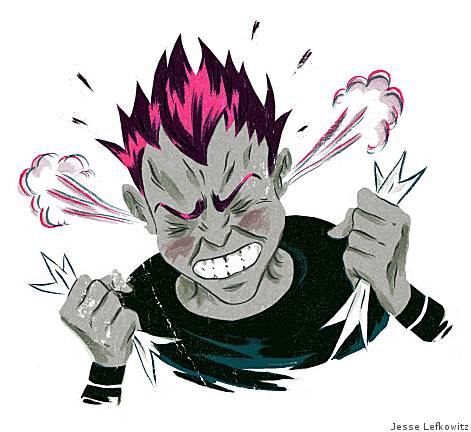Teen Anger and Teen Violence Statistics
There are many different statistics out showing the effects for teen anger on everything from dating to school to home life. The following are some startling statistics on teen violence:
- According to SafeYouth.com more than 1 in 3 high school students, both male and female, have been involved in a physical fight. 1 in 9 of those students have been injured badly enough to need medical treatment.
- The 2002 National Gang Trends Survey (NGTS) stated that there are more than 24,500 different street gangs in the United States alone. More than 772,500 of the members of these gangs are teens and young adults.
- The 2002 NGTS also showed that teens and young adults involved in gang activity are 60 times more likely to be killed than the rest of the American population.
- A 2001 report released by the U.S. Department of Justice claims that 20 out of 1000 women ages 16 to 24 will experience a sexual assault while on a date. And that 68% of all rape victims know their attackers.
- The U.S. Justice report also stated that 1 in 3 teens, both male and female, have experienced some sort of violent behavior from a dating partner.
Although all of the statistics focus on differing topics they all point to one frightening conclusion, teen anger and violence is now, and has been for several years, a problem in our society.
Angry Teens and Violence Warning Signs
The National Youth Violence Prevention Center has compiled the following list of warning signs that your teen may be having anger management issues:
- Frequent loss of temper over small issues,
- Frequent physical fighting with friends, acquaintances and family members,
- Damaging property while in a fit of anger,
- Use of drugs and/or alcohol,
- Written plans for violent acts,
- Carrying a weapon(s),
- Been the victim of school bullies,
- Gang affiliations,
- Failure to acknowledge the feelings of others
- Fascination with weapons and
- Cruelty to animals.
What to do with an angry teen?
Most teen management professionals agree that dealing with a teen with an anger problem should start at home. They believe that most teen anger comes from underlying emotional problems such as fear or rejection or failure. Suggestions on what to do when your teen has an anger management issue include:
- Give them support and understanding. Try to get to the real issue not just what is on the surface.
- Let them know that everyone has negative emotions and that it’s okay to get angry, but it’s not okay to lash out because of their anger.
- Watch for triggers and find a way to deflect the anger into something more appropriate.
- Help them to recognize the feelings that cause the anger and how to deal with them before they get out of control.
If all else fails, check into professional help for your angry child. However, a mental health professional is not someone you should just pick out of a telephone book, do your research. Ask around for referrals; don’t worry about what others might think as there are more families dealing with teen anger than not these days. It may also do you some good to know you are not alone in your struggles. Make sure the person you choose has the same values and viewpoint as you; you don’t want your child to get conflicting information from you and their counselor. Meet with the person prior to setting up an appointment for your angry teen. Check into family counseling as well; remember teen anger isn’t just your child’s problem.
